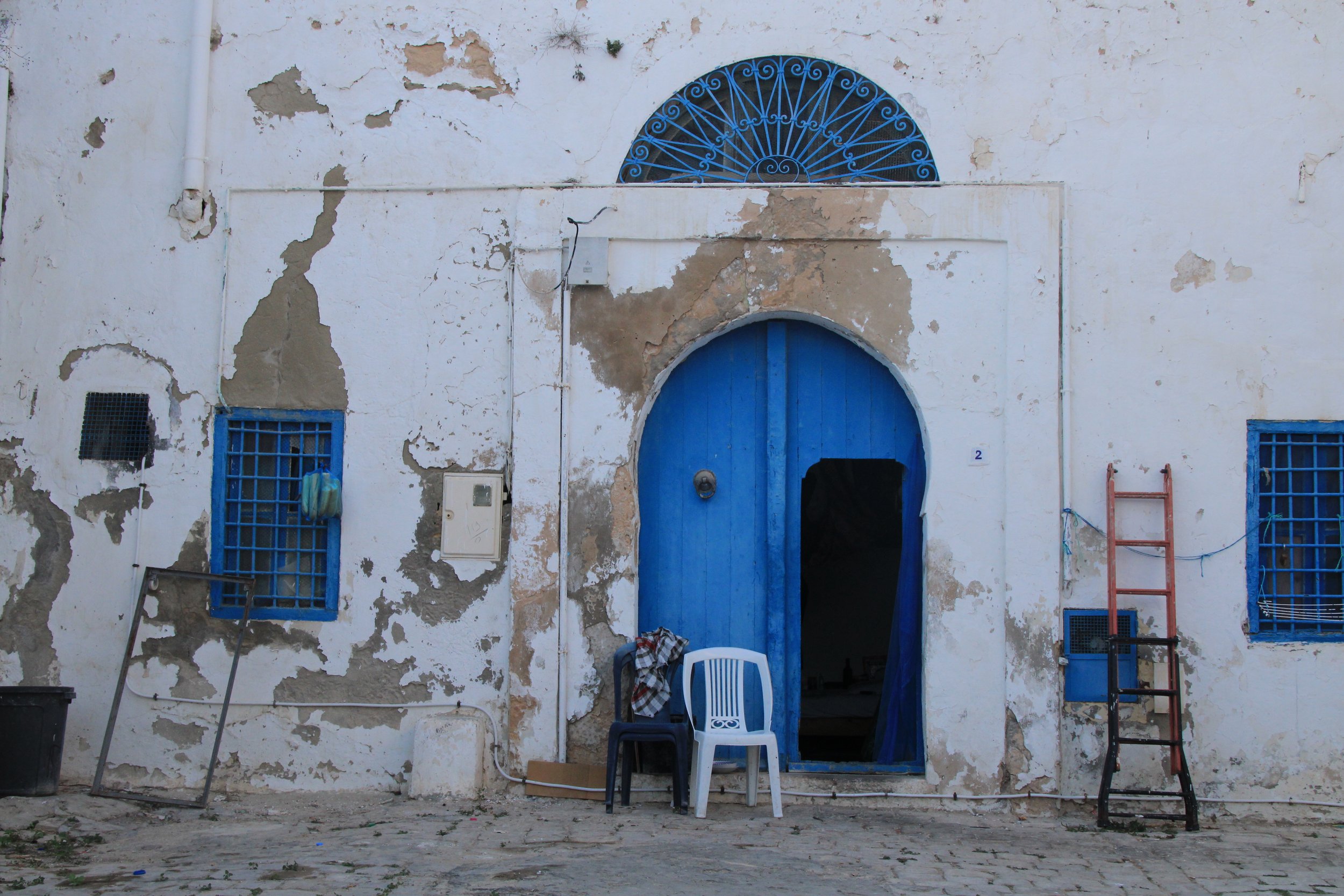In Tunisia I can only say that I observed a strange society that had seemingly severed most links to its past and locked itself in a somewhat Nihilistic and hopeless future. The Tunisian economy is in crisis, driven by the inflation that is affecting every part of the world right now, and I suspect because of her dismal placing on the Economic Freedom Index and Ease of Doing Business Index by the Heritage Foundation and World Bank repectively. In this especially modern-feeling country, signs of the past are few and far between with respect to their neighbors in the Maghreb. Fast food sandwich shops selling Mlaoui, Chabati, and Shwarma mix with pizza joints to near monopolies of the restaurant industry. Of traditional Tunisian food only cous cous and ojja can be found in any regularity. Something like Mloukhia, a black sauce with meat is just not something one finds in the avenues of the major cities. Perfectly modern, souless concrete buildings line those same avenues, and most traces of traditional clothing are gone from them. Even in the far south, it is by no description common to see a Berber wearing a headscarf to protect their head and eyes from the sandstorms, wind, and heat which are still very much a part of their lives. Islam, that was just removed as the state religion, is opening the doors of its mosques to tourists; something I’ve never seen before.
Now of course I was only there for three weeks, and am by no means an expert. Yet across all the places I visited I saw a country hauling itself towards modernity and leaving the past very much behind. Yet that very modernity they sought has seemingly offered them nothing to be termed an advantage. In seeing so little traces of Amazigh or Arabic culture one imagines instead to see signs of progress made by secular, forward looking people who are committed to development. Instead what I saw, heard, and was returned to me from interviews is that things are getting worse. In the south, practitioners of more traditional lifestyles are abandoning them to move to new government-built villages and encountering simply a different set of problems. They take to chain smoking and sitting in cafes for hours, unable to go back or move forward. In some cities I visited, modern construction techniques are creating ugly, soulless buildings that don’t inspire anyone to put any effort into their work, and so units built even in the 21st century are already falling apart.
PICTURED: A cobbler inside the old medina of Sfax, mass producing faux leather shoes from under the slowly decaying walls of the old fortress.
A hotelier, who believed Tunisia made a big mistake overthrowing their dictator, told me that the people didn’t know what freedom meant, or that they use now their freedoms in a bad way. I thought this was profound, and imagined a country sandwiched between colonialism, their own traditions, Islam, two dictatorships, and the modern desire for liberty propped up only, as they are a Francophone nation, by Nihilistic French revolutionary thinking that charged the people of Tunisia with a misplaced vigor to achieve largely meaningless political freedoms at the expense of personal and economic ones, the importance of which that they didn’t understand. Defenseless from the centralizaiton of power, I feel quite confidant saying they have been turned into something of a kleptocracy, and rank among some of the least-free countries, economically speaking, in Africa.
Yet now is the time to digress to happier throughts. In the south there is a revival of traditional ways going on, where people are recognizing that the race to Nike sportswear and brushed aluminum stovetops isnot necessarily going to make them happy. In a region called “Dahar,” of which I will report on more next week, people are beginning to repair historic villages in the traditional way. Not just because it attracts tourists, but because going to the cities means enduring the constant, defeaning “rat-tat-tat-tat” of moped exhausts, bad unclean air, and terrible traffic. My interviews of these village dwellers brought forth similar answers time and again. “It’s good to be out here in nature” I was told. Abandoned hillforts built by nomadic Berbers from the 19th century that are falling to pieces are becoming unique-in-the-world hotels and guesthouses, bringing hospitality specialists out from the major cities with their families into a beautiful countryside of desert mountains and flatlands carved up by endless terrace farms of date palms and olive trees. It was truly a unique landscape. There’s also a sort of “Right to roam” attitude among the locals, much like that of Norway or Iceland. Few discernable boundaries mark land out, and simply finding some flat ground to camp under the stars is not looked at as unusal by any means—indeed I picked up a squad of microchip salesmen who had done just that the night before, and who were hitchhiking back to the city.




